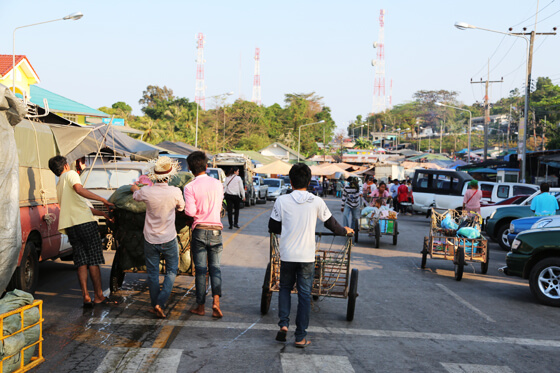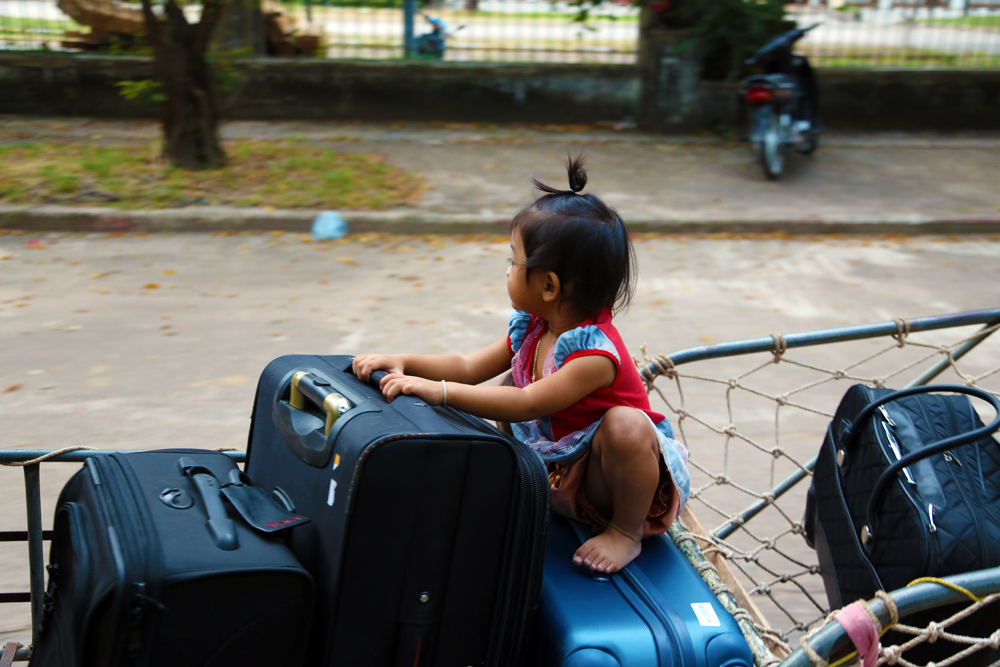The Oud Journey
Cops and Cash
The Great Cambodian Experiment X
Men dressed in khaki shirts with technicolor stripes stitched all over their pockets, tucked into khaki pants held up by big black belts, starred epaulets decorating their shoulders, stand watch over the throng of people passing by within a few meters of them. A barricade funnels people toward their security post and you have to squeeze past the row of officers to get into the purgatory road that takes you out of Cambodia to the Thai checkpoint; a stretch of about a hundred meters where I suspect you’re in no-man’s land.
In the past we slipped through without bother, carrying only our suitcases. They were always stuffed with agarwood, but who would ever guess as much? This time around, suitcases alone wouldn’t cut it. We had wagons full of large 30kg sacks to account for — and they wouldn’t let us go before we did.
As we approach the road block, one officer casually walks over and in broken English asks where I’m going and what I’m doing there. At the sight of the bags, he calls over another officer, and another. “These yours?” Soon, curious bystanders start to gather around. I take out the import permits, export permits, CITES certificates, purchasing receipts, declarations of safety and politely try to clarify that we come in peace. But hardly anybody understands me, of course. I might as well speak Turkish.
We’re not trafficking anything harmful; quite the contrary. Yet, even with all the legal paperwork in your pocket, when the time comes to explain what’s up with all the wood we’re carrying, it’s like trying to talk your way out of a drug bust. Eventually there’s a mash of policemen and customs guys asking about our bags. Every now and then an army officer with more gold stars on his shoulders than the rest shows up and I think he’ll settle things down. But he just repeats what they all do, tears open another one of the bags we took great care to wrap. Some of them pass around a lighter to burn a piece of the wood. “This is agarwood” I hear whispered in passing before another officer grabs a handful of wood and shows it to yet another. My hands up in the air and a bulging vein starting to outline the frame of my temple show them I’ve had enough, as I try to bring things to an end. Raising my voice never helps. The confused shouting just echoes back and forth. At least I’m not like Kruger, who’s in the same boat a few meters away, with his own crowd of policemen and bystanders, bags ripped open. He means no harm, but his frank non-compliance in these situations quickly rubs government officials and security personnel the wrong way.
Like always in these situations, it ends abruptly when, amidst the scurry, everyone arbitrarily agrees that we owe the authorities $xxxx for us to pass through. I protest as much as I’m able to, knowing that all they understand is the Khmer the guy next to me is shouting at somebody else. I give up and visibly disgruntled hand a lump of cash to the nearest policeman, gather the now scattered bags of agarwood onto the wagons and move on. That is round one. The Thai crossing is up next.
The sun was high up when we got to the border; gone by the time we crossed it.
Days later, ceramic barrels were soaking at the distillery and inside the barrels our aged Cambodian wood was drinking a fine brew. Explaining to border police why two bearded foreigners wearing funny hats were carrying carts full of bags stuffed with bits of wood was one thing. Why they now needed to bring in a one ton tank full of red-brown liquid was another. And why, a few days later, they had to do it again. Then again. And again.






